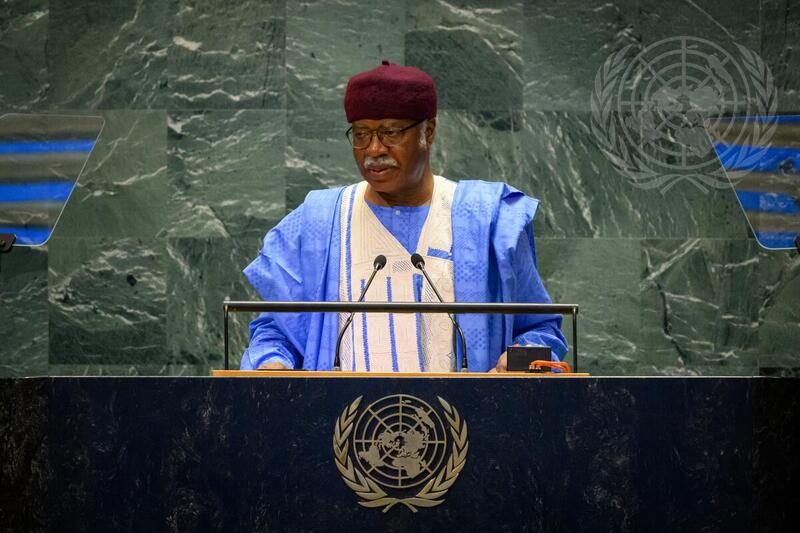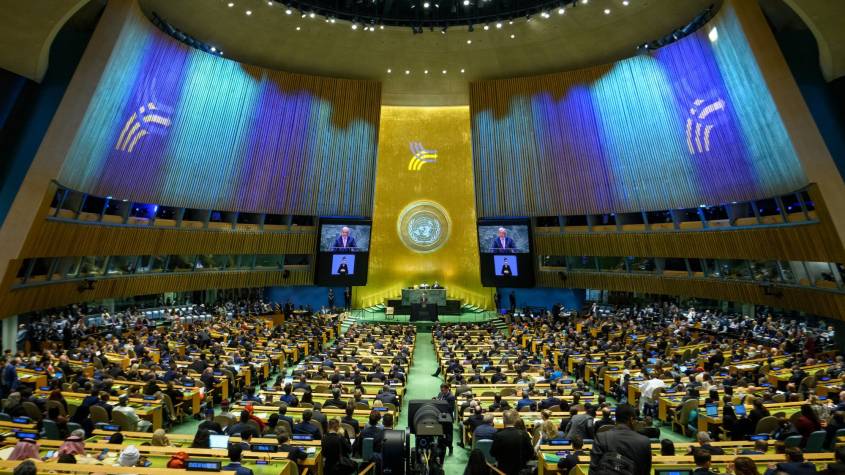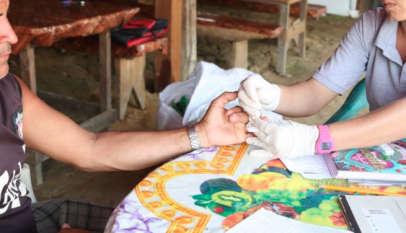SOTF: World Leaders Adopt Historic Pact of the Future
World leaders at the ongoing Summit of the Future (SOTF) and 79th Session of the United Nations General Assembly (UNGA), have adopted the long-awaited, intergovernmentally negotiated and agreed upon Pact for the Future, which seeks to forge a new international consensus to create a better present and safeguard the future.

The Pact for the Future is the SOTF’s main outcome document which includes two main annexes i.e Global Digital Compact, aimed at regulating artificial intelligence (AI), and Declaration on the Future Generations, aimed at securing the wellbeing of generations to come. All three documents reflect the views of millions of people from around the world towards continued global cooperation in the years to come.
While speaking at the opening of the SOTF in New York, President of the 79th Session of the UN General Assembly Mr Philemon Yang announced that about 143 Member States voted in favour of the Pact for the Future while seven voted against it just as 15 absented.
The Summit of the Future is described as a once-in-a-generation opportunity to enhance cooperation on critical challenges and address gaps in global governance, reaffirm existing commitments including the Sustainable Development Goals (SDGs) and the United Nations Charter, and move towards a reinvigorated multilateral system that is better positioned to positively impact people’s lives.
Effective global cooperation is increasingly viewed as critical for humanity’s survival but difficult to achieve in an atmosphere of mistrust, using outdated structures that no longer reflect today’s political and economic realities. Against this backdrop, the just adopted Pact for the Future aims to address global development challenges such as climate change, youth inclusion, human rights, Artificial Intelligence and security.
Among others, the Pact seeks to ensure future generations are considered in today’s decisions and the creation of more opportunities for young people to have a say in global issues. It also seeks reforms of the UN Security Council to make it more representative of countries of the Global South including Africa.
The Pact also advocates the elimination of nuclear weapons and stronger rules for the peaceful use of outer space; Enhancing progress on the SDGs particularly ending poverty and protecting the environment; Reform of the International Financial Institutions (IFIs) to give developing countries more influence; as well as Strengthening of commitments to gender equality while protecting those who defend it.
In his remarks, Russian Deputy Foreign Minister Sergey Vershinin criticized the Pact noting that the intergovernmental notations on the Pact did not take place adding that Germany and Namibia (who coordinated the negotiations) only included what was dictated to them by Western countries, ignoring Russia’s repeated requests for intergovernmental negotiations on the text.
“We requested to sit down and discuss these problems at the same table. This cannot be called multilateralism. Mr. President, it would have been optimal not to put forward this non-consensus-based text, but to continue negotiations until this document finally is acceptable to all, without exception the direct negotiations and delegations and not maneuvers through coordinators. This summit would be our then future, common future, the victory of multilateralism in the UN Charter,” Vershinin said.
Representative of the Democratic Republic of Congo who spoke on behalf of the Africa Group at the UN rejected Russia’s call for amendments to the Pact paving the way for the adoption of the Pact for the Future noting that such an amendment was “not going to help us meet our legitimate hopes and aspirations.” Instead, Congo and by extension Africa, called for the need “to show our unity and our ability to provide common, concerted answers to the multiple and complex challenges.”
“The African group firmly believes that the adoption of such an amendment is not going to help us meet our legitimate hopes and aspirations. The African group firmly supports the leadership of the President of the General Assembly, and we support you in all of your efforts for the adoption of the pact for the future. African group would propose that no decision be taken about the draft amendment,” said the DR Congo representative.
The representative of Mexico seconded the motion for no action proposed by Congo. “The text of the amendment presented was never raised during negotiations, which prevented due consideration being given to it by delegations and by facilitators. Delegations have undertaken very many rounds of negotiations, and they have shown a willingness to achieve consensus. Mexico believes that the text before us now is the best result possible, and it lays the foundation for the future work of this organization. We reiterate our willingness to continue to participate in constructive, transparent and good faith negotiations.”
The Summit brought together over 4000 individuals from Heads of State and Government, observers, IGOs, UN System, civil society and non-governmental organizations. In a broader push to increase the engagement of diverse actors, the formal Summit was preceded by the Action Days held September 20-21, which attracted more than 7,000 individuals representing all segments of society. The Action Days featured strong commitments to action by all stakeholders, as well as pledges of USD 1.05 billion to advance digital inclusion.














